The greatest civilisations have been built up on and around them, they provide a valuable source of water and life – we are talking, of course, about rivers. There are plenty of impressively long ones across the globe, but what is the longest river in the world?
Figuring out the exact length of a river is a complicated process. You need to know the location of its source and where its mouth is – the start and end points of a river, respectively.
This can be trickier than it sounds and can change over time. Considering tributaries and channels can complicate matters further, along with the seasonal changes a river can go through.
Because of this, a river's length is not an exact science, which is why you’ll see different lengths listed across the web. It also means that the longest river on Earth is disputed (more on that below). The lengths listed below are approximations taking a series of variables into account.
With all of that in mind, here are the top 10 longest rivers in the world.
10. The Amur River - 4,444km (2,761 miles)
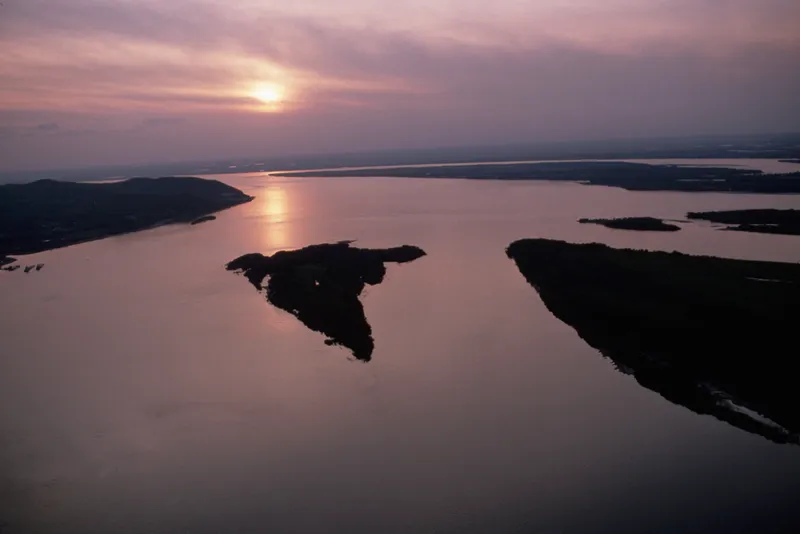
The tenth-longest river in the world is the Amur River, which extends 4,444km (2,761 miles). This is the total length when you include its farthest source – the river Argun.
The Amur’s run begins in Mongolia and heads east through China and Russia, forming the primary border between the far east of Russia and northeastern China. Its mouth is the Amur Estuary, emptying into the Strait of Tartary.
It’s home to the Kaluga fish, which can grow up to 5.6 metres in length, just one of 100 different species of fish found in the basin. You can also spot the Indian lotus flower in its northernmost habitat on the river.
9. The Congo River - 4,700km (2,920 miles)
The Congo River is the ninth-longest in the world and second-longest in Africa, extending a total distance of 4,700km (2,922 miles) from its farthest source to its mouth.
Running through the Democratic Republic of the Congo, Central African Republic, Angola, Republic of the Congo, Tanzania, Cameroon, Zambia, Burundi, and Rwanda. Starting in the East it arcs up to the northwest before heading southwest to its mouth bordering Angola and the Democratic Republic of the Congo into the Atlantic Ocean.
It flows through the Congo rainforest, a flow that is the second-strongest in the world behind the Amazon. This supplies a vital water source to over 400 species of mammals, including gorillas, African bush elephants, bonobos, and more, with over 1,700 species of birds and fish also represented.
8. Río de la Plata River - 4,880km (3,032 miles)
Río de la Plata is the eighth-longest river in the world and it measures a grand 4,880km (3,032 miles) in length. This is the length of the combined overlapping Paraná, Rio Grande, and Uruguay rivers.
The Río de la Plata by itself is just 290km (180 miles) long but taken as a whole with its tributaries is much longer and runs north to south through Brazil, Bolivia, Paraguay, Uruguay, and Argentina. It empties into the Atlantic Ocean between Argentina and Uruguay.
Another accolade of the Río de la Plata is that it is the widest river in the world, reaching a staggering 220km wide in a few areas.
7. The Ob River - 5,410km (3,362 miles)
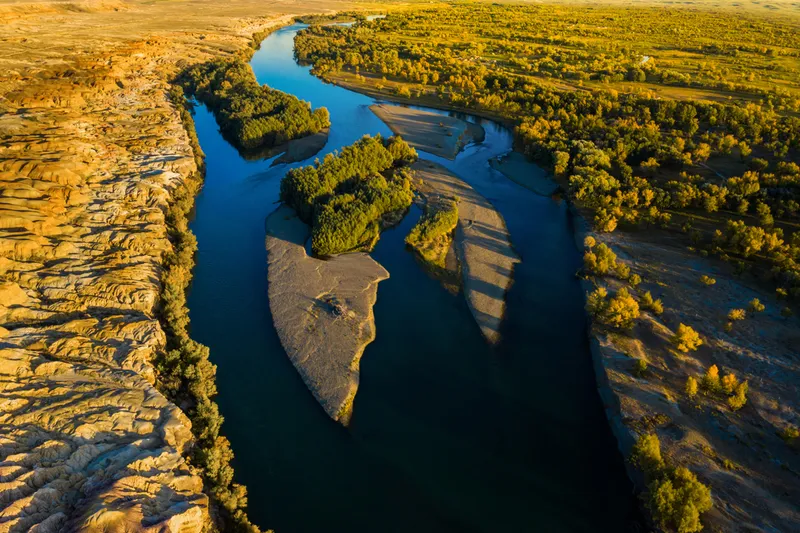
The seventh-longest river in the world is the Ob, which extends a total of 5,410km (3,362 miles). This is when the Irtysh River is included as part of its main course.
The Ob is on the west of the three major Siberian rivers – Ob, Yenisey, and Lena – and runs north through Mongolia, China, Kazakhstan, and Russia. It empties into the Gulf of Ob, which is the longest estuary in the world at around 1,000km (620 miles) long.
Between early November and the end of April each year at southern Barnaul and the end of October until the start of June in northern Salekhard, much of the Ob is frozen.
Read more:
- Meet the Amazon river dolphin: pink, piranha-eating, melon-headed cetaceans living in South America's longest waterway
- Why do beavers build dams?
- How do fish end up in isolated bodies of water like lakes?
6. Yellow River - 5,464km (3,395 miles)
The Yellow River is the sixth-longest river in the world, stretching 5,464km (3,395 miles) across China. It’s the second-longest river in China (the Yangtze is the longest - see below)
It begins in the Bayan Har Mountains and winds around the north and then east with its basin in the Bohai Sea, nearby to Dongying City. In terms of provinces, the Yellow River runs through Qinghai, Sichuan, Gansu, Ningxia, Inner Mongolia, Shaanxi, Shanxi, Henan, and Shandong.
The river’s basin is said to be home to over 160 native species of fish, 19 found nowhere else in the world. The Chinese pond turtle and Chinese softshell turtle are also native to the Yellow River. You’ll also find the Chinese giant salamander by its waters.
5. Yenisey River - 5,539km (3,442 miles)
The fifth-longest river in the world is the Yenisey, which extends 5,539km (3,445 miles) north through Mongolia and Russia.
It’s the central one of three major Siberian rivers (along with the Ob above and the Lena) and begins at its source of the tributary Selenga River. 97 per cent of the river is in Russia and just 3 per cent in Mongolia.
The Yenisey is home to the Taimyr herd of tundra reindeer, which is the largest herd of such reindeer in the world, during the winter. It’s been known for over one million reindeer to migrate to grazing ranges along the river during winter.
4. Mississippi River - 5,971km (3,710 miles)
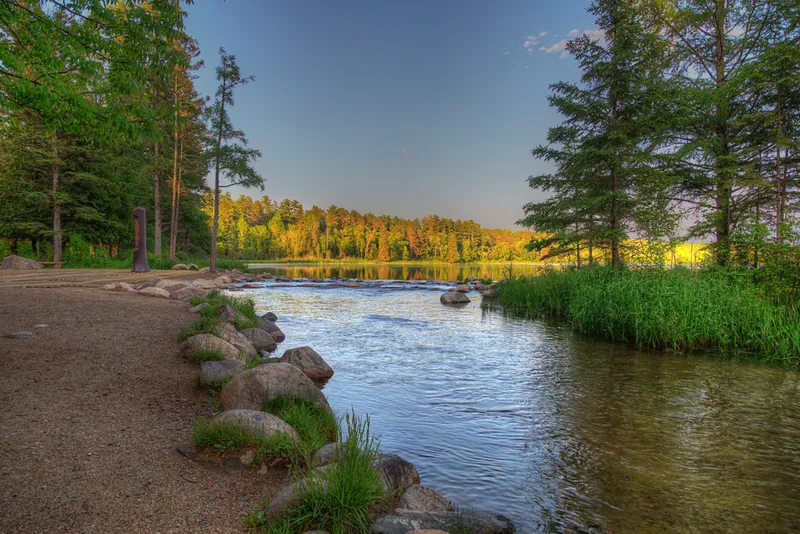
The Mississippi River is the fourth-longest river in the world and the longest in North America. Stretching from its source to mouth, it measures 5,971km (3,710 miles).
Running entirely through the United States, the Mississippi passes through the states (north to south) Minnesota, Wisconsin, Iowa, Illinois, Missouri, Kentucky, Tennessee, Arkansas, Mississippi, and Louisiana, before exiting into the Gulf of Mexico.
The length of 5,971km comes from measuring the river beginning at its longest stream source in Brower’s Spring in Montana. When measured from the traditional source of Lake Itasca, the Mississippi is just 3,766km (2,340 miles).
3. Yangtze River - 6,300km (3,915 miles)
The Yangtze River in China is the third-longest river in the world. From source to mouth, it extends some 6,300km (3,915 miles).
It’s the longest river in Asia and also the longest river that flows entirely in just one country – China. From its source in Jari Hill in the Tanggula Mountains, the Yangtze travels east through China to the Yangtze Delta basin. The river is also home to the largest hydroelectric power station (Three Gorges Dam).
The river is also the only place where you’ll find the Chinese alligator and narrow-ridged finless porpoise. Its Three Parallel Rivers of Yunnan Protected Areas is a UNESCO World Heritage Site, noted for being one of the most biologically diverse temperate regions on Earth.
2. The Amazon River - 6,400km (3,977 miles)
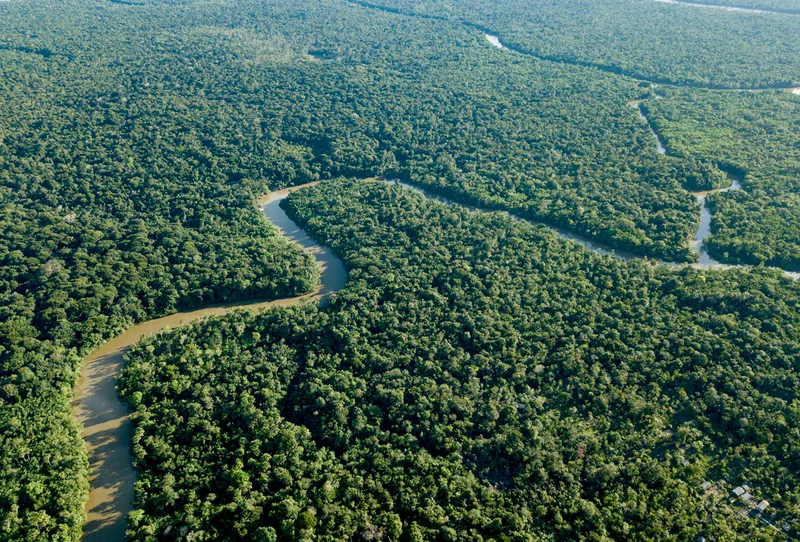
The second-longest river in the world is the Amazon, which stretches at least 6,400km (3,977 miles) from source to mouth.
The mighty Amazon runs through the north of South America, going through Peru, Colombia, and Brazil. Its mouth, the Amazon Basin, is the largest drainage basin in the world and the River provides 20 per cent of the global river discharge into the ocean.
There is some dispute, though, over how long the Amazon actually is. 6,400km is widely accepted by scientists around the world, but some claim that it is longer than the Nile. This is because there are questions about the precise location of the source.
1. The River Nile - 6,695km (4,160 miles)
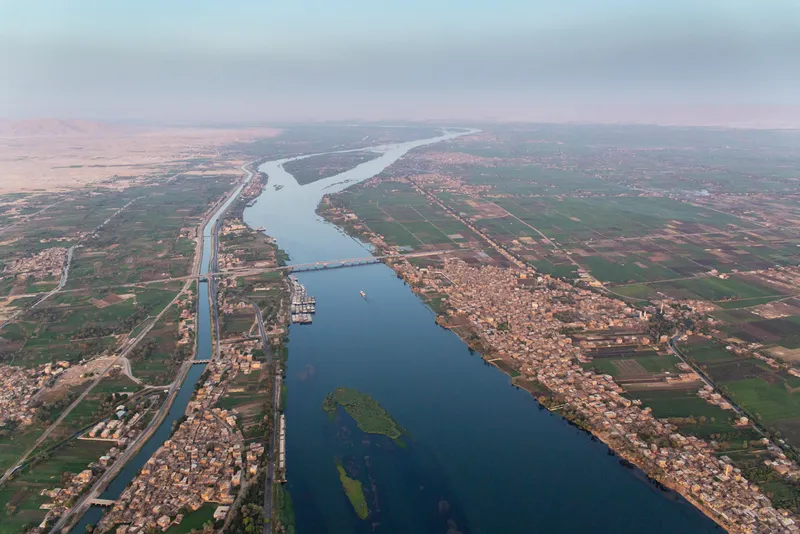
The Nile is the longest river in the world and measures 6,695km (4,160 miles) in length from its source to its mouth. The Nile runs north through a large portion of East Africa, running through Burundi, Rwanda, Tanzania, Kenya, the Democratic Republic of the Congo, Uganda, Ethiopia, South Sudan, Sudan, and, finally, Egypt.
The primary water source of Egypt, South Sudan, and Sudan, much of ancient Egypt was built up along the side of the river. Its basin is at the tip of the nation (the Nile Delta) and water from the mighty river flows into the Mediterranean Sea.
As stated above, the river is the disputed longest in the world, along with the Amazon.
Read more:
